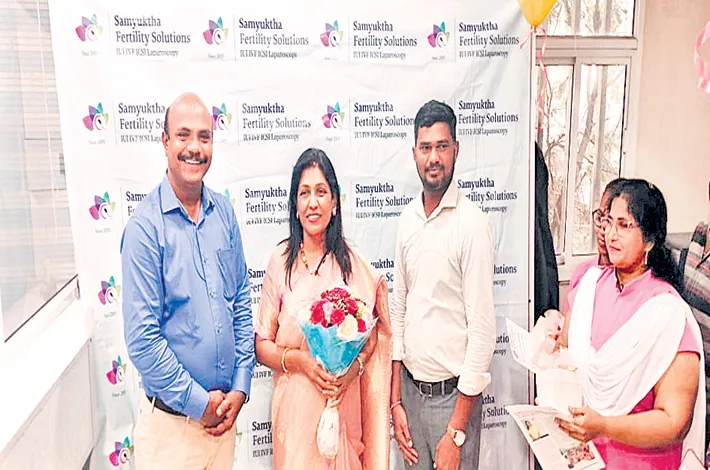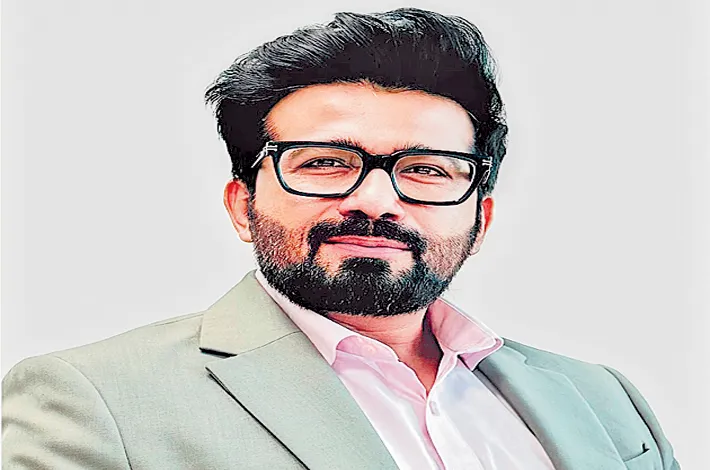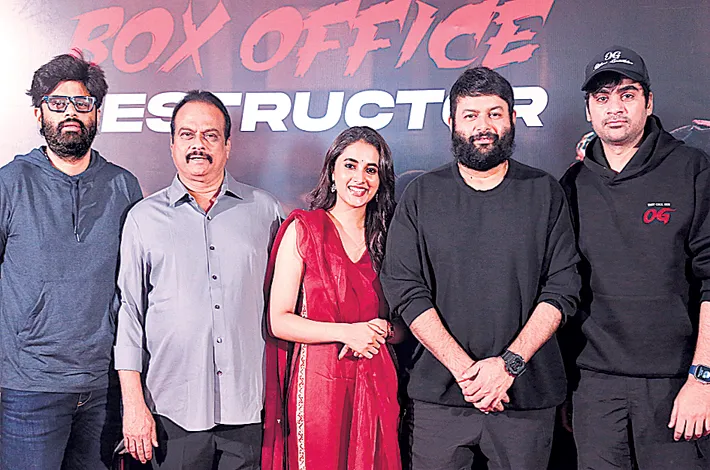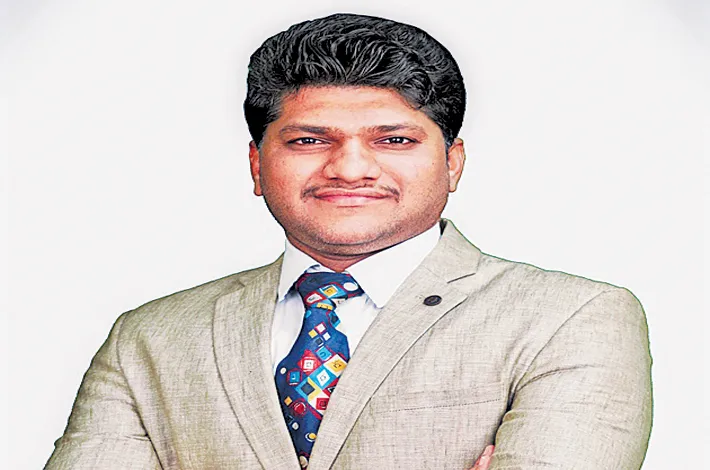Whispers of the Rails
21-09-2025 12:00:00 AM
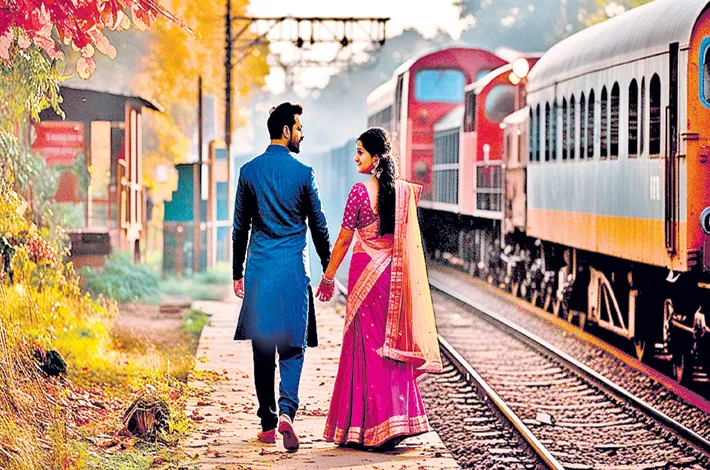
In the heart of South Lallaguda, where the broad-gauge lines sliced the suburb like silver veins, the railway quarters stood as a testament to lives intertwined with iron and steam. Rows of neat, ochre-painted houses lined the dusty lanes, each one a mirror of the next—verandahs adorned with potted marigolds, clotheslines fluttering like signal flags in the evening breeze. The air hummed with the distant rumble of the Godavari Express and the sharp whistle of shunting engines from the massive repair yard nearby. Here, families of railway folk wove their days around timetables and shift rosters, their dreams chugging along tracks that stretched to distant horizons.
Arjun Rao lived in Quarter No. 147, a modest two-room affair where the scent of his mother's coconut chutney mingled with the perpetual tang of engine oil from his father's uniform. At seventeen, Arjun was the son of a proud loco pilot, Ravi Rao, whose hands bore the calluses of throttles and whose stories of midnight runs to Vijayawada filled dinner tables with wonder. Arjun dreamed of following in those footsteps, but for now, he navigated the corridors of the local railway school, sketching locomotives in the margins of his notebooks.
Across the tracks, in the shadow of the towering water tank, sat Quarter No. 212. Priya Sharma's home was a riot of color—her mother, Lakshmi, a clerk in the traffic office, strung fairy lights along the fence for every festival, turning the quarters into a twinkling galaxy. Priya, sixteen and sharp as a switchman's blade, helped her widowed mother sort waybills after school. With eyes like polished onyx and a laugh that echoed like a station bell, she harbored secrets: poems scribbled in a diary hidden under her mattress, verses about freedoms beyond the colony's fenced borders.
Their worlds collided on a sweltering afternoon in June, during the annual Railway Family Day at the colony grounds. The event was a cacophony of sack races, kabaddi matches, and samosa stalls manned by eager uncles. Arjun, roped into the boys' relay, tripped over his own feet mid-handover, tumbling into a heap of dust and laughter. As he dusted off his kurta, a soft voice cut through the chaos: "Here, your shoelace is plotting against you."
Priya knelt beside him, tying the rebel lace with deft fingers, her dupatta slipping to reveal a silver anklet that chimed like a tiny derailleur. Their eyes met—his hazel, flecked with the gold of sunset on rails; hers a deep well of monsoon skies. "Thanks," he mumbled, heat rising not from the sun but from the spark between them. "I'm Arjun. Loco pilot's son."
"Priya," she replied, standing with a grin. "Clerk's daughter. We keep your father's trains on time—or try to."
From that fumble, a rhythm began. Mornings found them at the school gate, exchanging notes on homework disguised as train schedules. Afternoons, they'd slip away to the overgrown verge by the tracks, where wild bougainvillea climbed the fence like lovers' initials. Sitting cross-legged on a discarded sleeper, they'd watch the Rajdhani thunder past, its coaches a blur of faces heading to lives Arjun and Priya could only imagine.
"Tell me about the stars you see from the cab," Priya would say, her head tilting toward the endless sky. Arjun, emboldened, would spin tales his father told—of constellations guiding pilots through fog-shrouded nights, of the Big Dipper pointing north like a faithful signal. In turn, she'd recite her poems, words tumbling like gravel under wheels: In the quarter's hush, where whistles weep, / Two hearts derail on tracks too steep.
One evening, as the sun dipped behind the hospital's whitewashed walls, they wandered farther than usual. The repair yard loomed, a labyrinth of skeletal bogies and welding sparks. "Race you to the old signal post," Arjun challenged, his voice husky with the thrill of forbidden ground. Priya won, of course, her laughter breathless as she touched the rusted arm first. He caught up, pulling her into the shadow of the post, their palms brushing—electric, like live rails.
"I feel like we're on our own journey," he whispered, heart pounding louder than any horn. She turned, her face inches from his, the air thick with jasmine from her hair. "Then don't stop the train, Arjun." Their lips met softly, a tentative brush that deepened into the promise of monsoons yet to come. The world narrowed to that kiss: the grit of red earth underfoot, the faint vibration of an approaching freight, the shared breath of two souls synced to the same pulse.
But rails, like romances, had their derailments. Word spread through the quarters like a goods train—gossip over tea at the canteen, whispers in the ladies' compartment of the local EMU. Lakshmi Sharma, ever the guardian of propriety, confronted Priya one dusk, her bangles clinking like warning bells. "He's a good boy, beta, but your exams are next month. And his father—Ravi Uncle—wants him in the driving school, not daydreaming by tracks." Across the divide, Ravi Rao grumbled to his wife about "clerk families meddling in loco matters," a silly rivalry born of departmental pride.
The conflict crested on Independence Day, amid the colony's flag-hoisting and patriotic songs. Arjun and Priya stole to their spot, but tension crackled like overhead wires. "They think we're just kids playing at love," she said, voice cracking. "But what if we are? What if the tracks pull us apart—your father to a new shed, my mother to overtime?"
Arjun took her hands, callused from sketching now mirroring her ink-stained ones. "Then we'll build our own line. Straight through the quarters, past the yards, to wherever the whistle calls." He pulled a small brass token from his pocket—a relic from his father's cab, etched with a heart. "This is our signal. Green light forever."
Tears glistened in her eyes as she pocketed it. "Promise?"
"Promise."
Word of their vow reached the elders through the grapevine of aunties. At the next community meeting in the training hall, amid discussions of pension hikes, Ravi and Lakshmi exchanged glances. "Our children," Ravi said gruffly, "they're like those old coupling rods—stronger together." Lakshmi nodded, a smile breaking through. "Let them chug along, then."
By September's equinox, with leaves turning amber like signal lamps, Arjun and Priya walked the quarters hand in hand. The Rajdhani roared past, carrying dreams northward, but theirs stayed rooted here—in the whistle's lullaby, the quarters' embrace. In South Lallaguda, where families forged lives from steel and steam, love proved the truest timetable: unhurried, unbreakable, forever on track.





